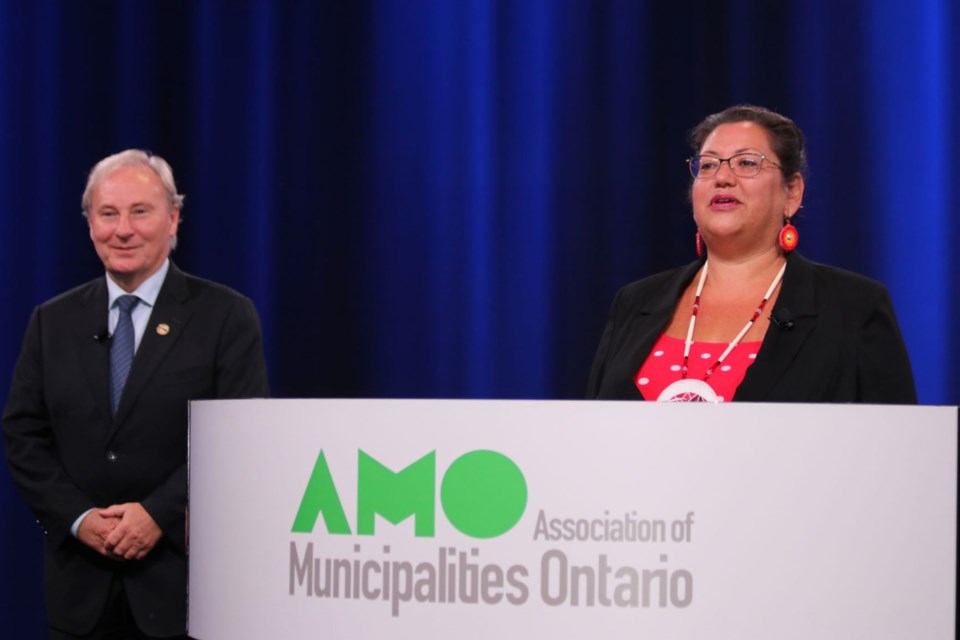The Ontario Federation of Indigenous Friendship Centres (OFIFC) and the Association of Municipalities of Ontario (AMO) are trying to foster 'reconciliation' and 'relationship building' with the newly-introduced Declaration of Mutual Commitment and Friendship: Improving the Quality of Life of Indigenous People across Ontario's Municipalities.
According to a news release issued by OFIFC, the declaration "highlights the relationships and work being done to improve the quality of life of Indigenous people across Ontario’s municipalities." The agreement is also intended to help municipal governments and friendship centres build relationships and collaborate to improve supports and services for Indigenous peoples.
“This declaration strengthens our partnership with the Ontario Federation of Indigenous Friendship Centres. We encourage collaboration between municipalities and Friendship Centres, and support opportunities to build relationships and improve community supports and services. AMO is here to advance this work,” said outgoing AMO President Jamie McGarvey via news release. “We are thankful for these efforts in strengthening communities across Ontario and we are committed to the relationship we will continue to build together.”
The following municipal governments and friendship centres have signed the declaration:
- The Town of Fort Erie, the Region of Niagara and the Fort Erie Native Friendship Centre
- The Town of Sioux Lookout and the Nishnawbe-Gamik Friendship Centre
- The City of London and the N’Amerind Friendship Centre
- The Town of Cochrane and the Ininew Friendship Centre
- The City of Sault Ste. Marie and the Indian Friendship Centre
- The City of Hamilton and the Hamilton Regional Indian Centre
The following are currently in discussions surrounding the new agreement:
- The City of Dryden and the Dryden Native Friendship Centre
- The City of Ottawa and the Odawa Native Friendship Centre
- The Town of Red Lake and the Red Lake Indian Friendship Centre
- The Town of Fort Frances and the United Native Friendship Centre
- The City of North Bay and the North Bay Indigenous Indian Friendship Centre
According to OFIFC, 85 per cent of Indigenous people live off-reserve in urban and rural communities.
“Friendship Centres recognize that the development of relationships based on mutual respect and trust with municipalities is essential to achieving long-term positive impacts for Indigenous communities,” said OFIFC President Jennifer Dockstader in a news release. “We are both uniquely positioned to improve wellbeing by working to reduce inequality, discrimination, stigma and racism and by investing in improving social determinants of health. By working together, Friendship Centres and municipalities are recognizing mutual responsibility to address urban Indigenous community needs through relationships, partnerships and collaboration.”
